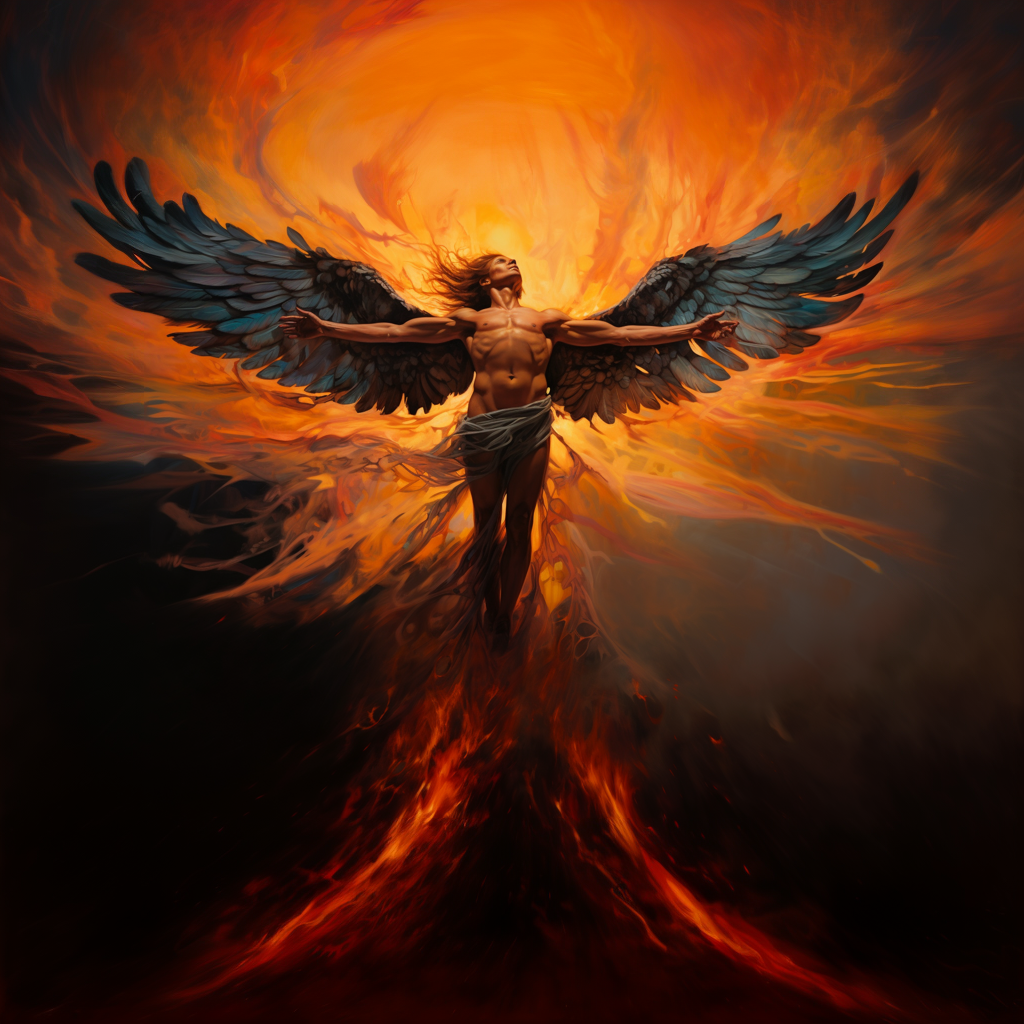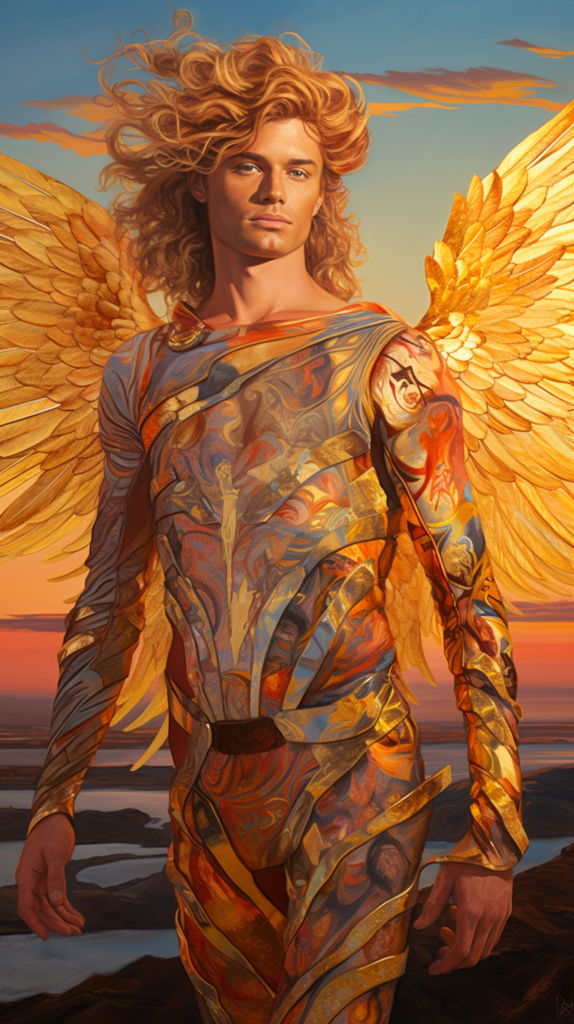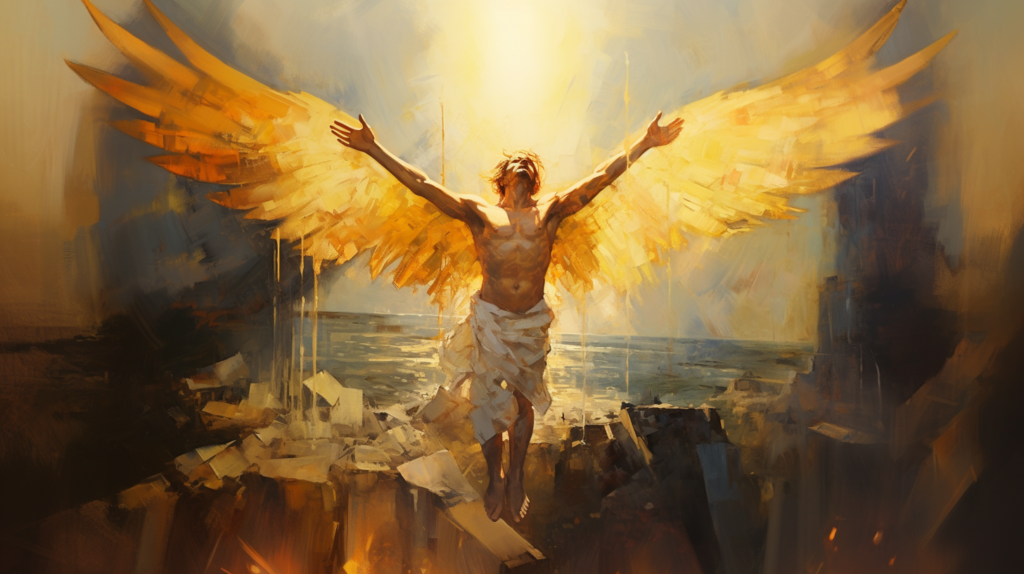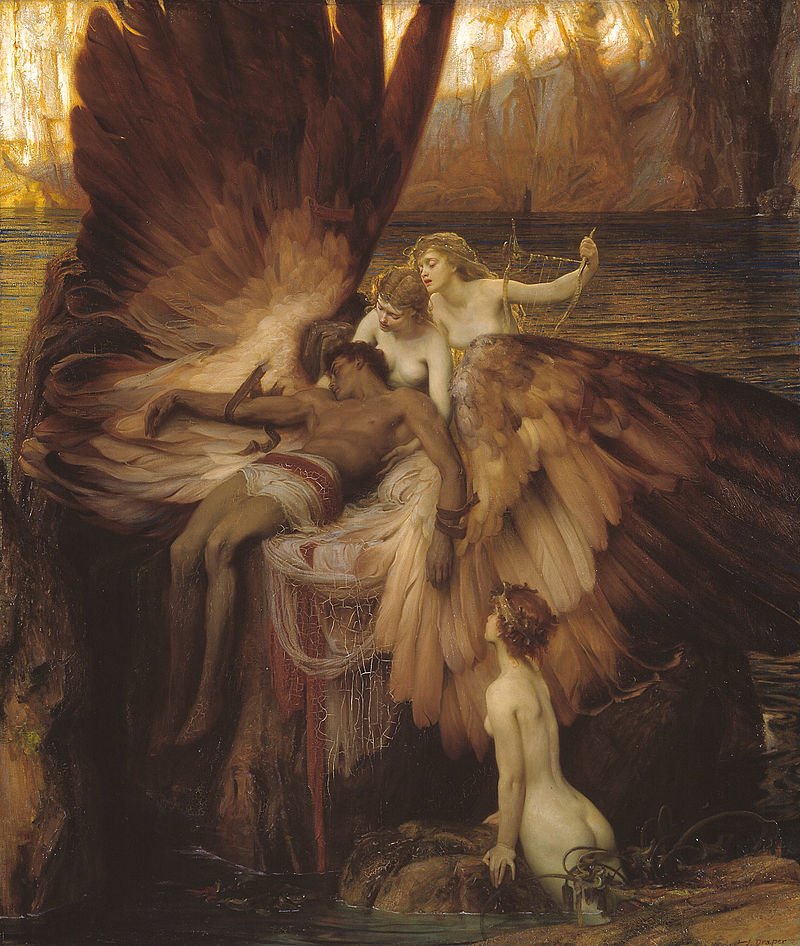Icarus, ‘The Soaring Dreamer’
“Icarus: The Daring Flight to the Sun – Did He Triumph or Fall?”

- Alias – The Soaring Dreamer
- Gender – Male
- Race – Human
- Occupation – Aspiring Aviator and Inventor’s Apprentice
- Religion – Worshipper of the Greek Pantheon
- Allies – Daedalus (Father and Mentor), Other mortal inhabitants of Crete
- Enemies – None explicitly mentioned in the myth
- Abode/Base of Operations – Crete, Greece
- Nationality – Greek
- Languages – Ancient Greek
- Alignment – Chaotic Good
- Affiliation(s) – None specified in the myth, primarily associated with his father Daedalus and the adventure of flight
- Significant Others – Daedalus (Father)
In the vast tapestry of Greek mythology, Icarus stands as an emblem of audacity and the allure of forbidden dreams. As a character shrouded in both hope and tragedy, Icarus’ tale continues to captivate hearts across the ages. Son of the master craftsman Daedalus, Icarus’ adventurous spirit and longing for freedom led him to embark on an audacious flight towards the sun. Through his daring escapade, Icarus embodies the eternal struggle between human curiosity and the consequences of recklessness.
Character Description: Icarus, a youthful and exuberant figure, possesses an insatiable thirst for exploration and the yearning to defy the constraints of his earthly existence. As the son of Daedalus, a brilliant inventor, Icarus inherited a deep curiosity and innate fascination with flight. Under his father’s tutelage, he learns the art of crafting wings fashioned from feathers and wax, a creation that grants the gift of soaring through the sky.
Driven by a desire to break free from earthly limitations, Icarus longs to soar amongst the gods, touching the very sun that seems to beckon him from the heavens. His heart, ablaze with ambition, craves a taste of divine freedom, oblivious to the warning whispers of his father about the perilous heights and the unforgiving touch of the sun.
Motivations and Ambitions: Icarus’ desire to achieve the impossible fuels his relentless pursuit of flight. Beyond the mere act of flying, he seeks to transcend human boundaries, to taste divinity, and carve his name in the annals of history. Icarus yearns for the admiration of gods and mortals alike, craving the accolades that would accompany a successful flight to the sun.
His ambitions are rooted in a longing for liberation from the constraints of mortal life. In a world where humanity is bound by earthly chains, Icarus seeks to fly above the realms of ordinary existence, reaching for celestial glory. Fueled by a youthful exuberance and perhaps an ounce of recklessness, he dares to dream the impossible dream, undeterred by the cautionary tales that echo through the ages.
The Flight to the Sun: When the fateful day arrives, Icarus straps on his feathered wings, ready to take flight. As he soars through the boundless azure, the thrill of freedom envelops him, and for a fleeting moment, he tastes the euphoria of godlike ascent. But the closer he draws to the sun, the more his heart swells with a euphoria bordering on hubris, blinding him to the consequences that lie ahead.
In his ecstatic flight, Icarus neglects his father’s warning, and the very wax holding his wings together begins to melt under the sun’s searing rays. As the wax melts away, Icarus’ wings falter, and his lofty dreams come crashing down. He plummets from the heavens, a fallen dreamer whose tale now carries the weight of both triumph and tragedy.
The tale of Icarus, an eternal reminder of the perils of unchecked ambition, has transcended the confines of ancient myth, weaving its way into the fabric of human consciousness. As a character who dared to reach for the heavens, Icarus reminds us of the delicate balance between aspiration and heedfulness, and the eternal allure of defying boundaries. His legacy continues to resonate, serving as a cautionary beacon and a testament to the unyielding spirit of human exploration.
Icarus, the Daring Aviator

Medium humanoid (human), chaotic good
Armor Class 14 (natural armor) Hit Points 162 (24d8 + 48) Speed 30 ft., fly 60 ft. (wings)
| STR | DEX | CON | INT | WIS | CHA |
|---|---|---|---|---|---|
| 14 (+2) | 16 (+3) | 14 (+2) | 10 (+0) | 12 (+1) | 18 (+4) |
Saving Throws Dex +8, Cha +9 Skills Acrobatics +8, Perception +5 Senses Passive Perception 15 Languages Common, Celestial Challenge 9 (5,000 XP)
Background: Aspiring Aviator. Icarus gains proficiency in the Acrobatics skill and the Navigator’s Tools. His time spent crafting wings and studying flight gives him advantage on Acrobatics checks related to aerial maneuvers.
Special Equipment: Waxen Wings. Icarus wears wings made by his father, Daedalus, with feathers and wax. The wings grant him a fly speed of 60 feet. However, if he spends more than 1 hour continuously flying, the wax starts melting. For each additional hour, he must succeed on a DC 14 Dexterity saving throw or the wings malfunction, reducing his fly speed to 0 feet until he lands and repairs them during a short rest.
Actions
Multiattack. Icarus makes two attacks: one with his celestial spear and one with his waxen wings.
| Name | Weapon Attack | Damage | Range |
|---|---|---|---|
| Celestial Spear. | +8 to hit | 1d8+4 piercing | Melee or 20/60 ft. (thrown) |
| Waxen Wings. | +8 to hit | 2d6+4 slashing | Melee |
Legendary Actions
Icarus can take 3 legendary actions, choosing from the options below. Only one legendary action option can be used at a time, and only at the end of another creature’s turn. Icarus regains spent legendary actions at the start of his turn.
- Aerial Evasion. He uses his reaction to gain advantage on a Dexterity saving throw against an effect that would restrain or grapple him.
- Waxen Wings’ Repair. He spends a legendary action to attempt to repair his waxen wings. He makes a DC 14 Dexterity check; on a success, the wings’ malfunction duration is reduced by 1 hour.
- Aerial Flourish. He performs an aerial acrobatic display, granting him advantage on his next attack roll.
Lair Actions
On initiative count 20 (losing initiative ties), Icarus takes a lair action. The actions can be used only in an open sky environment.
- Solar Gaze. He channels the power of the sun, imbuing his next attack with radiant damage. The attack deals an additional 2d8 radiant damage on a hit.
- Feathered Gust. He summons a gust of feathers that swirl around him, granting him advantage on Dexterity saving throws until the start of his next turn.
- Hubristic Flight. He flies recklessly, causing him to gain resistance to all damage but also granting all creatures advantage on attacks against him until the start of his next turn.
Reactions
Audacious Dive. When an enemy misses Icarus with a melee attack, he can use his reaction to dive 10 feet downwards, potentially provoking an opportunity attack from the attacker. If the attacker misses this opportunity attack, Icarus can spend his reaction to gain advantage on his next attack against that creature.
Roleplaying Notes: Icarus is a bold and daring character, driven by a desire to explore the skies and touch the heavens. His dream of flight is both a blessing and a curse, as the waxen wings represent the fine line between freedom and tragedy. Players encountering Icarus may witness a spirited young man, always seeking new heights and willing to take risks for the thrill of adventure. However, his recklessness and desire for divine glory can lead him into dangerous situations. GMs can use his idiosyncrasies to create challenging encounters where Icarus’ audacity and hubris are put to the test.
Currently in the World

In the radiant glow of the setting sun, Icarus stands tall with an air of youthful exuberance. His sun-kissed skin reflects the warm hues of the evening sky, and his bright, twinkling eyes mirror the unyielding spirit of a dreamer. Tousled locks of golden hair frame his eager face, while his wings, fashioned from feathers and wax, rest folded at his back, a testament to his insatiable desire for flight.
In this moment, Icarus finds himself on a picturesque cliff overlooking the shimmering waters of the Aegean Sea. The gentle breeze caresses his cheeks, and he extends his arms as if yearning to embrace the very sky that beckons him. With the fading light casting a soft glow upon his countenance, he appears almost ethereal, a beacon of hope and curiosity against the canvas of the horizon.
Icarus’ mood is one of boundless anticipation, for he stands on the precipice of a dream fulfilled. The day has finally come for him to take flight, to soar amongst the gods and touch the realm of divinity. A mix of excitement and nerves courses through his veins, but his unwavering determination fuels his resolve. The sight of his father Daedalus, the master inventor and architect of his wings, fills him with pride and gratitude, for it is under Daedalus’ guidance that this audacious adventure takes shape.
With every fiber of his being, Icarus yearns to defy gravity, to escape the earthly bonds that hold him down. As he readies himself for the fateful moment, his heart swells with the promise of freedom and the thrill of a journey that transcends mortal limitations.
In this fleeting moment, Icarus stands as a symbol of hope and ambition, an embodiment of human curiosity and the pursuit of the extraordinary. With the sun dipping below the horizon, he readies himself to take flight, knowing that the world below will soon witness a dreamer’s triumph or a dreamer’s fall.
In Myth

In Greek mythology, Icarus is a central character in the well-known tale of “Daedalus and Icarus.” The story revolves around a father and son who are trapped on the island of Crete by King Minos. Daedalus, a brilliant inventor and craftsman, is tasked with building the Labyrinth, a maze to contain the monstrous Minotaur.
As the duo becomes disillusioned with their imprisonment, Daedalus devises a daring plan to escape their island prison. To achieve this, he constructs wings for both himself and his son Icarus, using feathers and wax to fasten them together.
Before their departure, Daedalus provides Icarus with a stern warning: fly neither too high nor too low. Flying too close to the sea would dampen the feathers, while flying too close to the sun would cause the wax to melt. Ignoring his father’s advice, Icarus becomes enthralled with the exhilaration of flight and soars too close to the sun, causing the wax to melt. Helpless, Icarus plummets into the sea, drowning in the waves.
The story of Icarus has been interpreted as a cautionary tale against hubris and excessive ambition. His desire to reach divine heights and become like the gods led to his tragic downfall. Icarus’ tale serves as a reminder of the delicate balance between aspiration and recklessness, and the consequences of overstepping mortal limitations.
Throughout history, this myth has inspired various artistic works, serving as a symbol of youthful impetuosity and the yearning to transcend earthly boundaries. The story of Icarus continues to resonate with audiences, reminding us of the perils of unchecked ambition and the enduring allure of dreams that soar to new heights.

 Buy me a coffee
Buy me a coffee